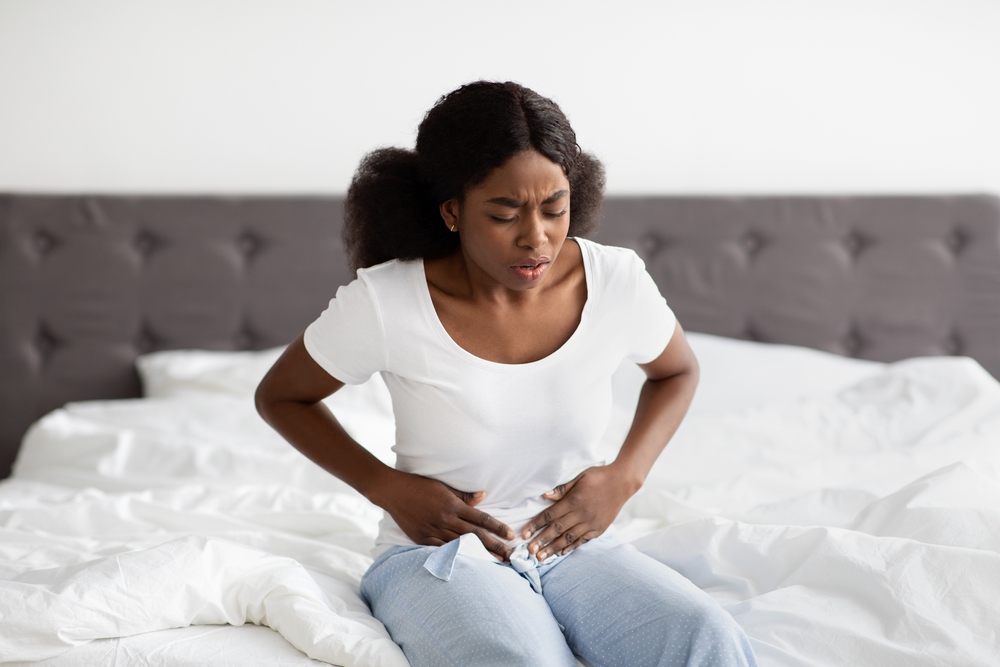
Endometriosis is fairly common among women, but it can be hard to diagnose. Symptoms of endometriosis can overlap with symptoms common in other health conditions.
Take this quiz to determine how likely you are to have endometriosis. Answer each question with yes or no.
Download this chart to track the symptoms of your menstrual cycle.
Download
- Do you experience severe cramps before and during your period?
- Do you bleed more than you think is normal and for longer than seven days during your period?
- Do you experience pain during sexual intercourse?
- Have you tried to get pregnant for at least a year without any success?
- Do you have recurring gastrointestinal issues?
If you answered yes to having one or more of these symptoms, you may have endometriosis. Share your symptoms with your doctor and discuss the possibility of endometriosis.
What is endometriosis?
Endometriosis occurs when uterine tissue grows in places that aren’t the uterus.
“It could be the outside of the uterus, on the fallopian tubes or ovaries, or deep in the pelvis,” said Vanessa Foster, MD, an obstetrician and gynecologist at OSF HealthCare.
Because there is tissue growing where it shouldn’t, endometriosis is often associated with intense pain. This pain comes from cramps within the uterus and in all the areas where endometriosis is growing. Plus, endometriosis often leaves scar tissue inside the body, which can contribute to the pain.
“Sometimes, it’s difficult to tell if it’s endometriosis because everybody’s pain threshold is different,” Dr. Foster said.
Dr. Foster’s advice: “Don’t ignore the pain.”
Other symptoms
Heavy bleeding
The uterine tissue growing outside of the uterus still does what normal uterine tissue does – thickens and sheds by bleeding every month you aren’t pregnant.
That also means that your monthly bleeding may be extra heavy. Going through more than one tampon or pad every two hours is a good indicator that your bleeding is heavier than it should be.
Painful sex
There are many reasons why you might experience pain during sex, but if you experience this in conjunction with some other key symptoms, it may point to endometriosis.
Either way, talk with your doctor to address painful sex. It shouldn’t be painful, and there are things you can do to alleviate the pain.
Infertility
Infertility among women with untreated or unmanaged endometriosis is high. About 24%- 50% of women experiencing infertility are likely suffering from endometriosis whether they know it or not.
“Endometriosis affects 5%-15% of reproductive-age women, and about a third of them will have infertility problems,” Dr. Foster said.
If you’re experiencing infertility, bring up the possibility of endometriosis with your doctor.
The sooner you and your doctor can determine what may be causing infertility, the sooner you can pursue possible solutions.
Gastrointestinal issues
Endometriosis can cause inflammation, which affects gastrointestinal function, especially if the uterine tissue is growing near the digestive tract. That’s why diarrhea, constipation, nausea and painful bowel movements may signal endometriosis.
Why is it so hard to diagnose endometriosis?
It takes an average of six to 10 years of experiencing symptoms before a woman usually gets diagnosed with endometriosis.
One reason for this may be how difficult it is to diagnose endometriosis.
“To definitively diagnose it, you have to have surgery,” Dr. Foster said.
It’s hard for doctors to justify surgery unless they are fairly certain endometriosis is the cause of the symptoms. That’s why Dr. Foster recommends keeping a detailed account of your menstrual cycle.
“The best thing is to keep a very detailed menstrual calendar,” she said. “Rank your pain level every day and write down your symptoms, such as when the pain started, how long it lasted and whether it came before or after the onset of bleeding.”






